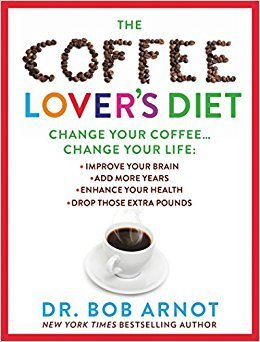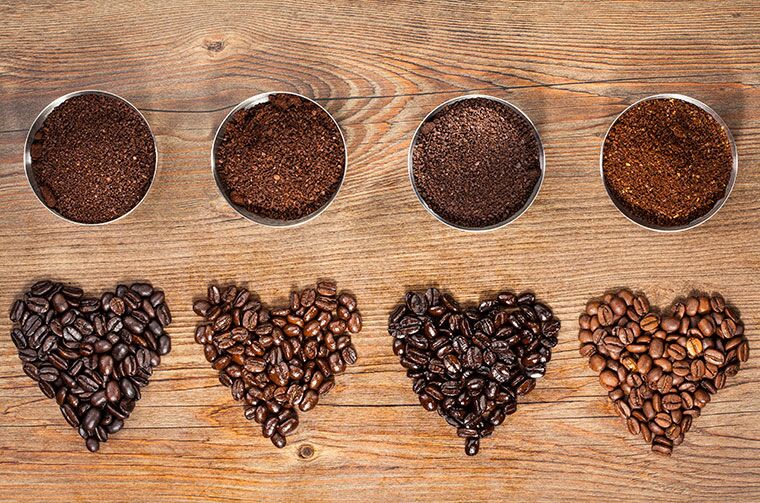This Is the Healthiest Coffee Order, According to an Expert

You rely on coffee to power you through everything from late-night study sessions and hungover mornings to workouts. But when it comes to hacking your cup of joe to make it as beneficial as possible, ordering can get pretty complicated. Should you add almond milk? Butter and MCT oil? Is nitro the smarter choice? (This is why it takes, like, 10 minutes for people to order.)
If anyone knows a thing or two about getting the most from your brew, it's Dr. Bob Arnot, MD. Besides being a medical correspondent for NBC Nightly News, The Today Show, and CBS This Morning, he's written 15 books on nutrition and health, including his latest, The Coffee Lover's Diet. In it, Dr. Arnot doesn't stop at a close examination of the countless studies on coffee that have been released the past five years—he and his team also performed over 44 scientific tests of their own to determine which beans, brews, and brands are best for the body.
"What's most important is the level of polyphenols," Dr. Arnot says, explaining that these are powerful anti-inflammatory, antioxidant-rich micronutrients. (They're in wine, green tea, and veggies, too.) Here, he shares five key tips for ensuring your cup of coffee has the most polyphenols possible—whether you brew your own at home or know the baristas at your local cafe by name.
Scroll down to learn how you can get the most health benefits from your coffee order.

1. Pay attention to where the beans were grown
Not all coffee beans are created equal. After testing thousands of different types of beans, Dr. Arnot and his team identified the locations that produced ones loaded with polyphenols. "The best regions are at high altitudes, have rich, volcanic soil, and are close to the equator," he says. Ethiopia, Kenya (a town called Nyeri in particular), Colombia, and Brazil all ranked the highest.

{{post.sponsorText}}
"When you think about it, this is true for most plants, not just coffee beans," Dr. Arnot says. "Vegetables and fruit grown in rich, nutrient-dense soil are going to be better for you." Point taken.

2. Go for a light roast
Our coffee-obsessed expert says a lot of people think that the darker the roast, the more caffeine there is in your brew. "A 'strong' cup of coffee just means more grinds," he says. So no, your French roast-drinking friends are not more hardcore than those opting for a lighter option. In fact, Dr. Arnot says that it's—plot twist!—the healthier option. "We roasted beans in five degree elements and found the lightest ones were the highest in polyphenols," he says.
"They also sparkle with flavor," he adds. "You can taste notes of blueberry, strawberry, hazelnut, chocolate, and so many other flavors, depending on the bean. But dark roasts are a good way for coffee makers to cover their errors—they just burn the bean. A lot of Americans think burnt coffee is just the way coffee tastes."

3. Don't stress about the brew method
Coffee lovers often nerd out talking about the benefits of specific brewing methods, like cold brew or nitro. But while there are definite benefits to thinking beyond the automatic drip coffee maker (Dr. Arnot is a fan of both of the aforementioned techniques), he says it's still not as important as what he first called out: the beans. "Don't let fancy terms distract you from where the coffee beans are coming from," he says.
(For the record, Dr. Arnot prefers to brew his coffee the Turkish way, which involves grinding the beans until they're a very fine powder—and have polyphenols galore.)

4. Take note of how your body responds to caffeine—and order accordingly
There's a common belief that the more caffeine your coffee has, the "better" it is, but Dr. Arnot tells me that's a total misconception. "For some people, caffeine can make them jittery, anxious, or keep them up at night," he says. "It's important to pay attention to your body to see how much makes you feel your best."
And ordering decaf is not a faux pas. "There are amazing decafs that still have high levels of polyphenols," Dr. Arnot promises. The takeaway here: Don't confuse the caffeine level with the coffee quality or health benefits. It's all about that powerful micronutrient.

5. Keep your order simple
For many wellness influencers, a cup of coffee is an opportunity to get a boost of healthy fats (by adding coconut or MCT oil) or even adaptogens. Others go the latte route, adding dairy or one of the many nut milks. Dr. Arnot totally gets the reasoning: "They pair beautifully together, forming a creamy texture, so adding almond or coconut milk is a good, healthy way to do that," he says. "And 'Bulletproof'-style coffee is beneficial in terms of performance—especially when it comes to working out." (Hello, added boost from healthy fats.)
Even so, his best advice is to keep it simple. "Things like cream and milk actually lower the amount of polyphenols," he says. "If you have an amazing light roast, the taste will be so complex you don't need any add-ins. It's just so good the way it is." And good for you.
If you're not into coffee, there's always matcha for a caffeine kick. Here's how to make sure you're getting some quality green powder. And you know about Starbucks' secret healthy menu, right?
Loading More Posts...